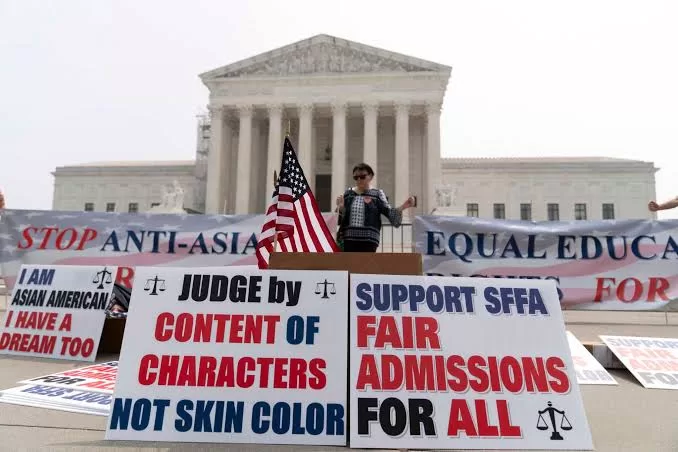The US Supreme Court ruled against two affirmative action programs in higher education in a 6-3 decision on June 29, 2023. The cases, Students for Fair Admissions v. Harvard and Fisher v. University of Texas, challenged the use of race as a factor in college admissions.
In Students for Fair Admissions v. Harvard, the Court found that Harvard’s admissions policy discriminated against Asian American applicants. The Court ruled that Harvard’s use of race as a “plus factor” in admissions was not narrowly tailored to achieve the university’s interest in diversity.
In Fisher v. University of Texas, the Court upheld the University of Texas’s use of race as a factor in admissions, but it also placed new limits on the use of race in college admissions. The Court ruled that universities must have a “compelling interest” in using race as a factor in admissions, and that they must use race in a “narrowly tailored” way.

The Court’s rulings in these cases are a major setback for affirmative action in higher education. The rulings make it more difficult for universities to use race as a factor in admissions, and they could lead to the end of affirmative action at some universities.
The Court’s rulings have been met with mixed reactions. Supporters of affirmative action argue that the rulings will make it more difficult for colleges and universities to create a diverse student body. Opponents of affirmative action argue that the rulings are a victory for equal opportunity and that they will help to ensure that admissions decisions are based on merit, not race.
The future of affirmative action in higher education is uncertain. The Court’s rulings have opened the door to further challenges to affirmative action, and it is possible that the Court could overturn affirmative action altogether in the future.

